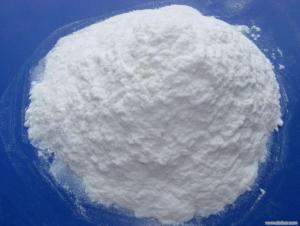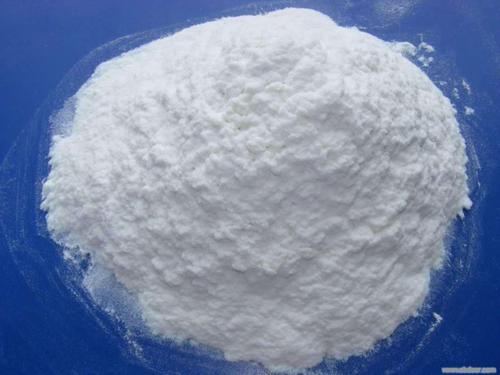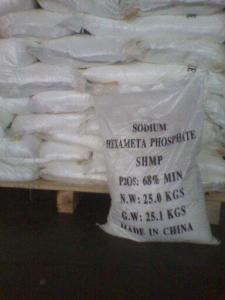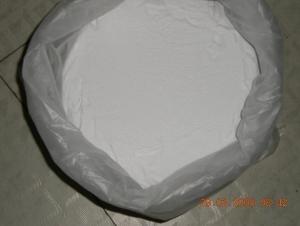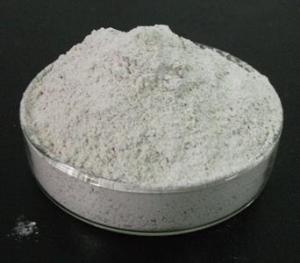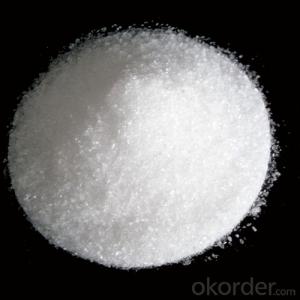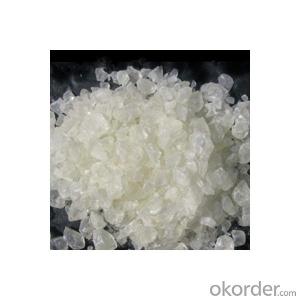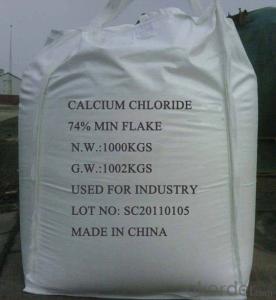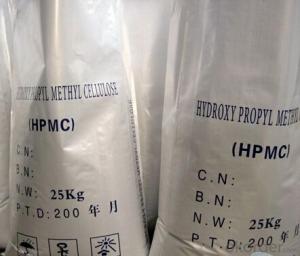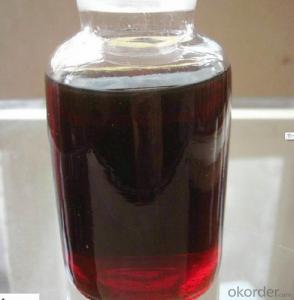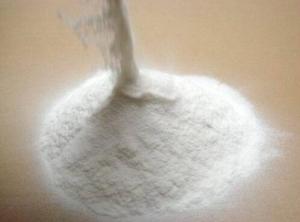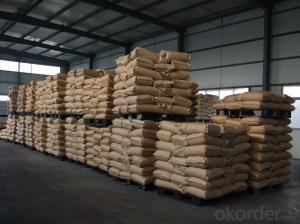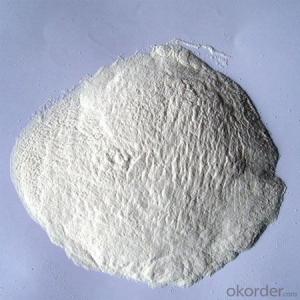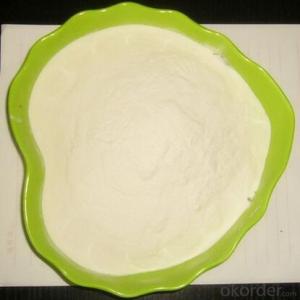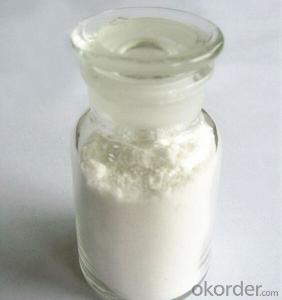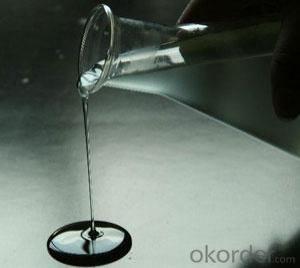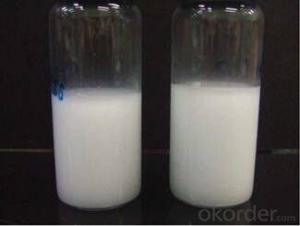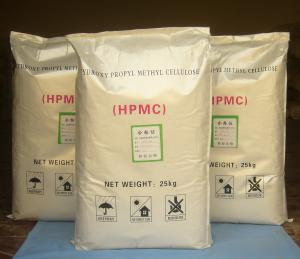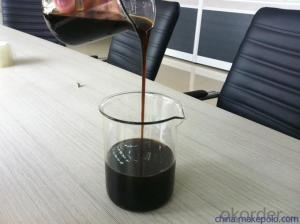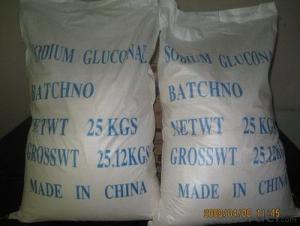Hydroxyethyl methyl cellulose (HEMC)
- Loading Port:
- China Main Port
- Payment Terms:
- TT OR LC
- Min Order Qty:
- -
- Supply Capability:
- -
OKorder Service Pledge
OKorder Financial Service
You Might Also Like
Product introduction:
HEMC is made from highly pure cotton - cellulose by reaction of etherification under alkaline conditions without any organs of animals, fat and other bioactive constituents.
HEMC is featured by hygroscopicity and hardly soluble in hot water, acetone, ethanol and toluene. In cold water, HEMC will swell into colloidal solution and its solubility is not influenced by PH value. Similar to methyl cellulose while being added to hydroxyethyl groups, HEMC is more resistant to saline, easily soluble in water and has higher gel temperature.
Physical and chemical index:
ITEM CAS: 9032-42-2 | INDEX | |
SS-H | SS-L | |
M.S. | 1.8-2.0 | 0.2-0.4 |
D.S. | 0.8-1.2 | 1.3-2.0 |
PH | 6.0-8.5 | |
Moisture % | ≤5.0 | |
Ash content % | ≤1.0 | |
Viscosity mpa.s | 1000-200000 | |
Appearance | white or off-white fibrous or granular powder, odorless, tasteless | |
Application:
HEMC is a kind of good admixture of the powder building materials, it can be used as gelling agent and water retaining agent of cement, gypsum and lime.
HEMC is widely used in waterborne latex paint, construction and building material, printing ink, oil drilling etc to play a role of thickening, retaining water and improving constructability. It is very suitable for dry and wet mortar series products.
Package:
25kg/package. Use polyethylene film cardboard or plastic polypropylene woven bag package.
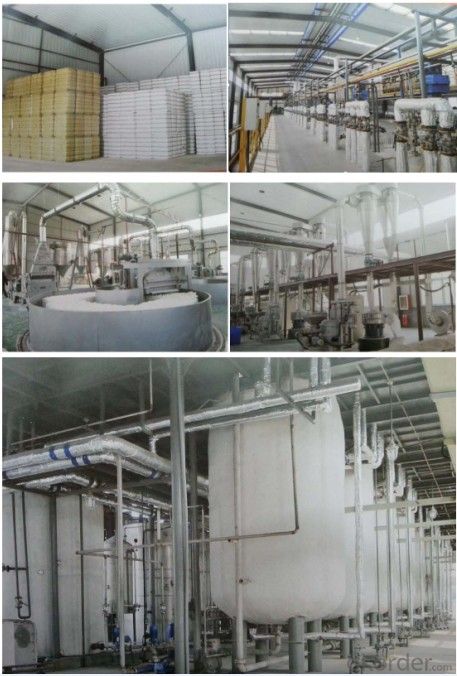
- Q: those little bottles that they sell that says all these improvementsshould i be using them or they‘re all just a big lie and a big waste of money?thanks
- They can help remove moisture in the fuel. If your car is giving you trouble because of bad gas or moisture build up in the tank (because it sat in humid or rainy weather with the gas cap off or something like that) then they can help. If you have trash in the tank, they can also help push that into the fuel filter where it is easier to change the filter and remove it. I don't think you should use them on a routine basis. They usually do improve gas mileage and performance a little (couple of MPG more), but only for a tank or 2 until it's all used up. After that the mileage/performance goes back to normal, and usually is not worth the cost of the additive just for that benefit.
- Q: I drive a 2007 Ford Taurus and the temperature is going to be in the negatives Monday and Tuesday. What gas additive should I add to the tank to prevent freezing? Thanks!
- A full tank does not help in any way for keeping your lines from freezing. The only thing it possibly does is slow the tank from freezing, but your lines will freeze well before the much larger amount in the tank. As far as additives, you shouldn't need anything. They put enough crap in it at the refineries. If you're really worried about it, dump a bottle of 'fuel line antifreeze' in the tank. Make sure if you do add that, you drive it or run it for at least 5 minutes to make sure it's all nice and mixed. Though again, you shouldn't have to bother. The ethanol should do a fine job of that on it's own. Anything you buy will likely be a waste of money.
- Q: The additive is sold at auto parts stores and the label claims it is legal to use. Anybody have more information?
- Its legal because it doesnt do anything. You will still fail your emissions test if you don't get your car fixed.
- Q: HELP!! -3, 0.2 please help! i‘ll give you all the stars you wantttttttt!
- The additive inverse of a number (x) is what number (y) you add to make their sum 0. Similarly the multiplicative inverse is what number you multiply to make their product 1. The additive inverse of -3 is 3 since -3 +3 0 multiplicative inverse is -1/3 since -3 * -1/3 1 similarly additive inverse of 0.2 is -0.2 and multiplicative is 5 since 5*.2 1
- Q: Just got oil change and was told to put a quart of motorkote in with the already 4 quarts of oil to make 5 quarts and did add it do I have to change my oil or is it fine
- Never ever at any time put additives in your oil. Never, not at all. Don't even think about it. What are you driving? It will say somewhere on the car no doubt.
- Q: What is your opinion on Food Additives?
- Regardless of how much we don't want them, we can't get by without them.
- Q: How much oil additive can you add to your crankcase?
- why would you want to use an oil additive. If you use a good oil and change it regularly you should never put an oil additive in your engine. If you look at what these additives really are they are mostly just thicker oil with some magic crap or so they claim that will make your car run like new again. If that is the case just put a 20w50 oil and you will have the same results. As you can tell I am not a fan of oil additives. I own and operate 3 quick lube centers and have never and wont ever sell additives. I will leave a customers oil a quart low and let them waste their money and put it in themselves.
- Q: Hello,I have a 2003 ford Taurus with 110K on it.Still looks new, and I have been religeious on the oil changes.Is putting in slick 50 a good or bad idea?
- BAAAAADDDD Idea!!! don't waste your money.
- Q: What food additives can not eat
- Colorants, emulsifiers, thickeners, preservatives, nutritional supplements, etc. Such as sunset yellow, carmine and caramel pigment is a permit for the use of food pigments.
- Q: is it a big deal choosing the good ranked Oil?
- S means spark ignition, the alternative being C for compression ignition, or Diesel motors. The letter following the S is the standard or standards met. The higher the letter the better. If you are looking to use one of the synthetics that doesn't carry an API rating, there are two reasons why they would do this. First, it costs a lot of money to have an oil certified. The fact that they aren't willing or able to spend that money is probably something to think about. But the other reason is that current API specs require low levels of the anti-wear additive ZDDP. It's being removed, because even in small quantities, it can poison catalytic converters. The new additive packages are more expensive, and so we come back to the question of why you would buy oil from a company that can't afford certification.
Send your message to us
Hydroxyethyl methyl cellulose (HEMC)
- Loading Port:
- China Main Port
- Payment Terms:
- TT OR LC
- Min Order Qty:
- -
- Supply Capability:
- -
OKorder Service Pledge
OKorder Financial Service
Similar products
Hot products
Hot Searches
Related keywords
